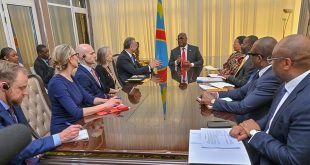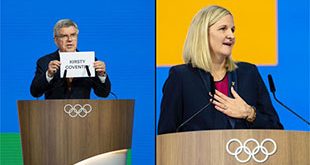
He has won the Nobel Peace Prize but not everyone is excited
NEWS ANALYSISI | THE INDEPENDENT | Since he became Prime Minister in April 2018, Abiy Ahmed has brought a breeze of happy air to Ethiopia and the Horn of East Africa region. Under him, most Ethiopians started to feel hopeful about the prospect of peace and democratic progress despite the ruling Ethiopian People’s Revolutionary Democratic Front (EPRDF) coalition– which has a long history of authoritarianism – remaining in power.
When Berit Reiss-Andersen, the chairperson of the five-member Norwegian Nobel Committee that awards the Peace Prize, announced on Oct.11 that Abiy had won the Nobel Peace Prize 2019 for his decisive initiatives to end his country’s conflict with Eritrea, there was cheering around the globe.
The 43-year old who has been in power for barely a year has emerged as progressive leader. The UN Secretary General Antonio Guterres applauded the committee’s choice.
“I have said often that winds of hope are blowing ever stronger across Africa. Prime Minister Abiy Ahmed is one of the main reasons why,” he Guterres said in a statement.
That is mainly because Abiy has taken bold progressive steps previously thought impossible in authoritarian Ethiopia. He has released thousands of political prisoners and journalists, allowed the press to operate and people to speak freely, and formed a commission for national reconciliation around his policy of “Medemer”.
He negotiated a rapprochement with Eritrea to end a longstanding conflict between the two countries that raged since 2000. To do that, he agreed to adhere to a border ruling that gave disputed territories to Eritrea. That led to the reopening of the border between the two countries on September 11, 2018.
He invited armed opposition groups, including the Oromo Liberation Front and Ginbot 7 G7 – which were declared terrorist organisations under the former leaders – back home. Then in October 2018, Abiy gave women in Ethiopia a big boost when he appointed the country’s first female president. He also gave half of all cabinet posts to women.
Despite Abiy’s achievements, ethnic tensions remain rife on the ground in Ethiopia and could flare up at any point. Internal conflict, according to the Internal Displacement Monitoring Centre report for Ethiopia, has led to the number of internally displaced people nearing 1.4 million – and rising.
Several scholars; including Stig Jarle Hansen, Associate Professor of International Relations at the Norwegian University of Life Sciences and Yeshitila Wondemeneh Bekele, Assistant professor, Hawassa University, have written about three disturbing trends in Ethiopia: tensions within the ruling party as well as a lack of a formal road map to outline where it’s taking the country, continued ethnic tensions, and the lack of transparency around the deals done with insurgent groups.
Even the peace agreement with Eritrea has not been fully implemented. Eritrea’s borders remain closed, including the all-important one to the public at Zalambessa which was opened for a while. The only open link is a 50-minute flight between Addis Ababa and Asmara. The border between the two countries has not been demarcated.
Reconciliation and reality
One day before he was awarded the Nobel Peace Prize, Abiy hosted heads of state and government from all over the region in Addis Ababa to take part in a huge “Medemer” celebration.
To peak the occasion, Abiy opened `Unity Park’; a 40-acre compound in the heart of Addis Ababa whose centerpiece is a palace constructed in 1887 by Emperor Menelik and his influential wife Empress Taitu. Abiy has remodeled the compound and turned the palace compound and the other historical buildings into a park open to the public and tourists.
However, as President of Kenya, Uhuru Kenyatta, Uganda’s Yoweri Kaguta Museveni, South Sudan’s Silva Kiir Mayardit, and Somalia’s Mohamed Abdullahi Farmajo cut the ribbon to open the park on Oct. 10; one distinguished guest was absent — Eritrean President Afewerki, Abiy’s partner in the “reconciliation” process.
Writing about the event, Ludger Schadomsky; the head of DW’s Amharic desk said the initial shuttle diplomacy pursued by Abiy and Eritrea’s autocratic ruler Isaias Afewerki – the one for which Abiy has won the Nobel Peace prize – has come to a halt.
 The Independent Uganda: You get the Truth we Pay the Price
The Independent Uganda: You get the Truth we Pay the Price




Our prayers
Hitler, Stalin and Mugabe were also nominated for the prize.